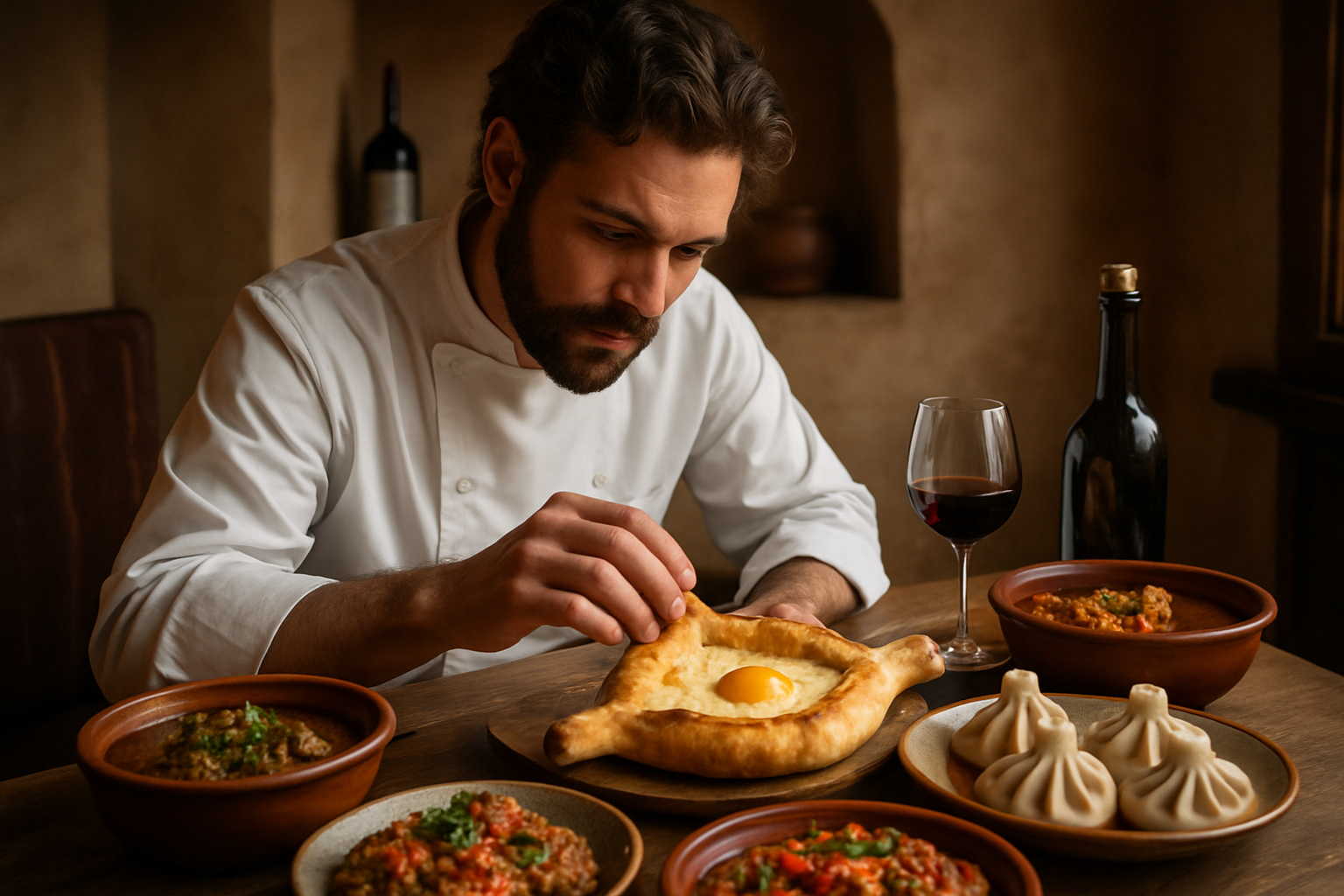Exploring the World of Culinary Expeditions: A Gourmet's Travel Guide
The fusion of travel and gastronomy has given rise to a new breed of adventurers: culinary explorers. These intrepid food enthusiasts traverse the globe, seeking out authentic flavors, unique cooking techniques, and immersive culinary experiences. From bustling street markets to Michelin-starred restaurants, culinary expeditions offer a tantalizing journey through culture, history, and tradition, all served up on a plate.

The roots of culinary tourism can be traced back to the Grand Tours of the 17th and 18th centuries, where European aristocrats would embark on lengthy journeys to broaden their cultural horizons. Food played a significant role in these expeditions, with travelers eager to sample exotic dishes and bring new flavors back home.
In recent years, the rise of food-focused television shows and social media has further fueled interest in culinary travel. Platforms like Instagram have transformed the way we share and discover food experiences, turning meals into visual spectacles and restaurants into must-visit destinations.
The Appeal of Culinary Expeditions
Culinary expeditions offer a multi-sensory approach to travel, engaging not just sight and sound, but also taste, smell, and touch. This immersive experience allows travelers to form a deeper connection with the places they visit and the people they meet.
Food serves as a universal language, breaking down barriers and fostering cultural exchange. Through shared meals and cooking experiences, travelers can gain insights into local customs, traditions, and ways of life that might otherwise remain hidden.
Moreover, culinary tourism often supports local economies and promotes sustainable travel practices. By focusing on local ingredients and traditional cooking methods, these expeditions help preserve culinary heritage and support small-scale producers.
Planning Your Culinary Adventure
Embarking on a culinary expedition requires careful planning and an open mind. Here are some key considerations:
Research your destination’s culinary landscape, including signature dishes, local ingredients, and dining customs.
Look beyond restaurants and seek out authentic food experiences, such as street food tours, cooking classes, and visits to local markets.
Consider timing your visit to coincide with food festivals or harvest seasons for a more immersive experience.
Be adventurous with your palate, but also respect your dietary restrictions and local customs.
Learn basic food-related phrases in the local language to enhance your interactions with vendors and chefs.
Emerging Trends in Culinary Tourism
As the field of culinary tourism evolves, several exciting trends are emerging:
Hyper-local experiences: Travelers are seeking out ultra-specific regional cuisines and lesser-known local specialties.
Food and wellness: The intersection of culinary tourism and wellness travel is growing, with a focus on nutritious, plant-based, and healing foods.
Tech-enhanced culinary experiences: From AR-enhanced menus to AI-powered food recommendations, technology is reshaping the culinary travel landscape.
Regenerative culinary tourism: This approach focuses on food experiences that actively contribute to the restoration of local ecosystems and communities.
Challenges and Considerations
While culinary expeditions offer rich rewards, they also come with challenges. Food safety is a primary concern, particularly when exploring street food or rural areas. Travelers should exercise caution and follow local recommendations to avoid foodborne illnesses.
Cultural sensitivity is another important consideration. What may be considered a delicacy in one culture might be taboo in another. It’s crucial to approach unfamiliar foods and dining customs with respect and an open mind.
Sustainability is also a growing concern in culinary tourism. The carbon footprint of food transportation and the impact of overtourism on local food systems are issues that responsible culinary travelers must consider.
Savoring the Journey: Expert Tips for Culinary Explorers
-
Research regional specialties and seasonal ingredients before your trip
-
Take a local cooking class to learn authentic techniques and recipes
-
Visit markets early in the morning for the freshest produce and bustling atmosphere
-
Engage with local food producers and artisans to understand their craft
-
Document your culinary adventures through photos, recipes, and tasting notes
-
Pack digestive aids and any necessary medications for food-related concerns
-
Consider food tours led by local experts for insider knowledge and access
-
Be mindful of portion sizes to sample a wider variety of dishes
-
Learn about wine and beverage pairings to enhance your dining experiences
-
Practice responsible dining by supporting establishments that prioritize sustainability
A Feast for the Senses
Culinary expeditions offer a unique lens through which to explore the world, providing a feast for all the senses. By delving into local food cultures, travelers can gain a deeper understanding of history, traditions, and the human connections that food fosters. As the world of culinary tourism continues to evolve, it promises ever more exciting and immersive ways to experience global cuisines, making every journey a delicious adventure.





